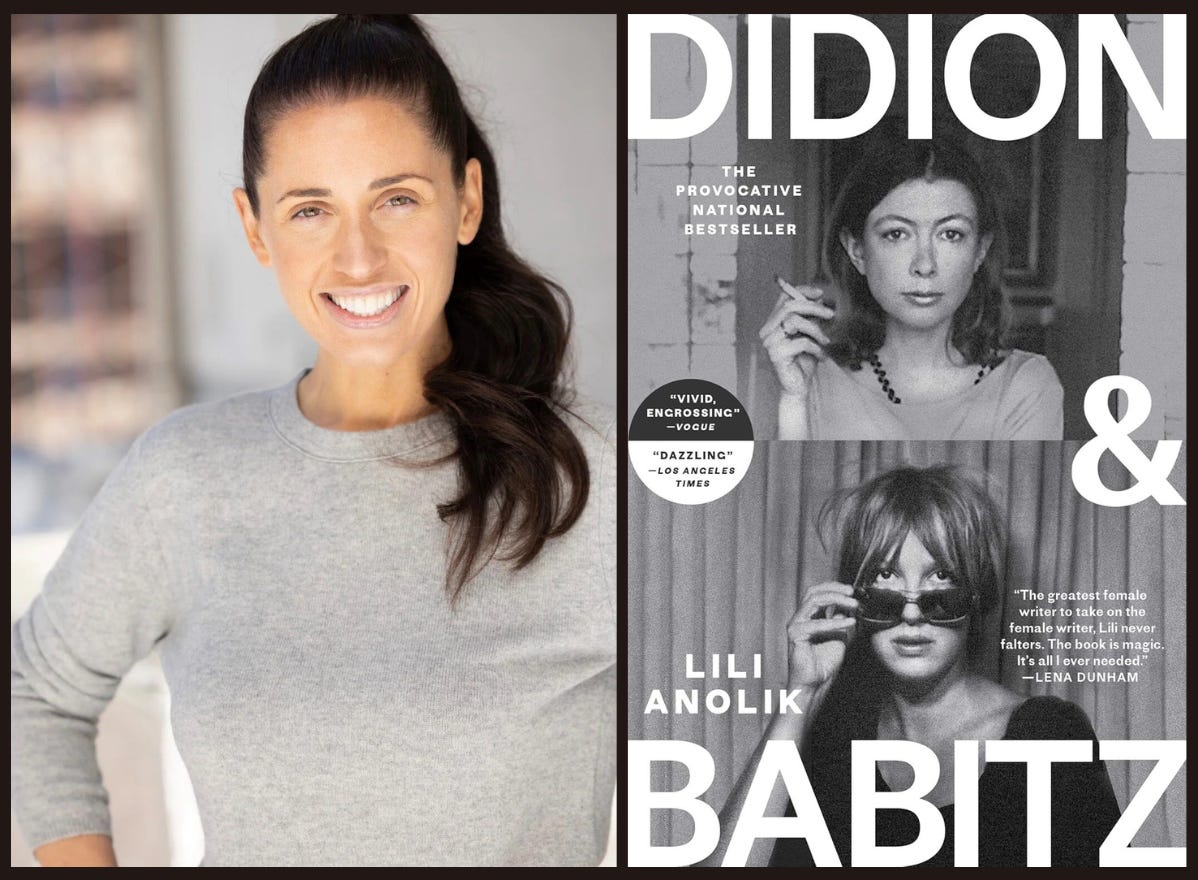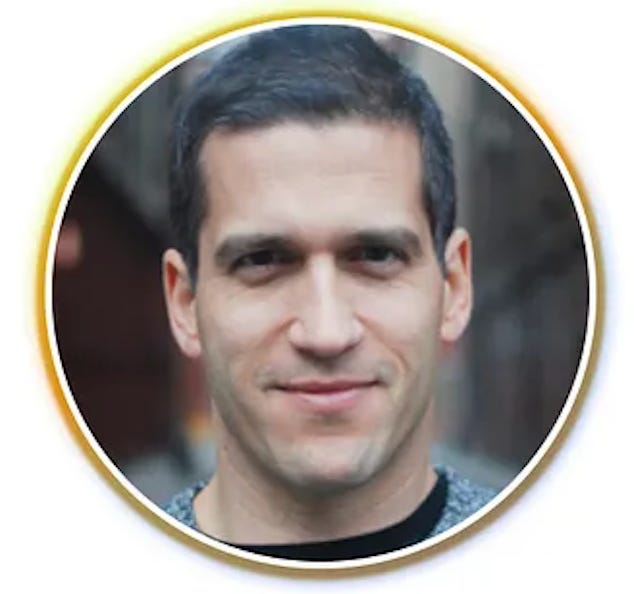The Art of Nerve
Lili Anolik on writing, obsession, and why podcasts are just books that talk.
Lili Anolik has made a career out of chasing literary ghosts, and doing it with style. A contributing editor at Vanity Fair and writer at large for Air Mail, she’s the kind of journalist who makes her subjects feel mythic again, whether she’s revisiting the glamour and grit of Los Angeles in Hollywood’s Eve: Eve Babitz and the Secret History of L.A. or resurrecting Joan Didion and Eve Babitz in conversation in her latest book, Didion & Babitz. She’s also the creator of the addictive podcast Once Upon a Time… at Bennington College, which turned a small Vermont school into a pop-culture fever dream.
Anolik’s voice is part critic, part confessor—funny, unfiltered, and just a little dangerous. She’s not afraid of contradiction or complication; in fact, she thrives on it. Didion & Babitz continues that obsession with genius and self-destruction, tracing two literary lives that defined—and defied—the California dream.
In her Author Insider Questionnaire, she talks about her chaotic writing process, the curse of curiosity, and why nervous energy is the point.
25 Questions with Lili Anolik
1. I couldn’t have written my last book without…
Eve Babitz’s mother, Mae Babitz. So, Evie lived in a rathole of a hellhole of a shithole of an apartment. She destroyed everything! Not intentionally—through a combination of carelessness and enthusiasm. Like, I remember she asked me to get her Afternoon Men, an early Anthony Powell novel. She loved it! But when I came to pick her up for lunch one day, I saw it on the floor of her living room, torn to absolute shreds. Mae Babitz knew her daughter; so, when she packed up boxes of Eve’s letters, manuscripts, collages, etc., she taped the boxes tightly, tightly. Which meant Eve couldn’t open them (Eve got impatient easily), and thank God! Without those letters, Didion & Babitz would never have been possible.
2. What’s the thing most people get wrong about being a writer?
That it’s entirely solitary. The actual writing part is something you do by yourself, of course. The pre-writing phase, though, is intensely social. For me, anyway. But that’s probably because I do non-fiction, and thus lots and lots of interviewing.
3. What’s something you wish you’d started doing five years ago?
I wished I’d recorded every conversation—no matter how casual—I ever had with every person I thought might have something to do with a book I might possibly wish to write one day. My work is almost always backward-looking, so people tend to die on me. The nerve!
4. Hemingway wrote standing up; Edith Wharton, lying down. What are your quirks?
I think that’s baloney about Hemingway writing standing up, by the way. He could be pretty goofily macho. He probably convinced himself that sitting was for sissies, and so wouldn’t admit to doing it. Anyway, when I write, I put one song on repeat. Just that one song all day long.
5. Do you read your reviews?
I can’t. Even when they’re non-shitty. I get my guy to read them and give me thumbs up or thumbs down.
6. What income streams make up your writing business?
Is writing a business?!? I could never think of it that way!
7. Kiss, marry, kill: podcasts, newsletters, and speaking gigs.
Oh, I have eyes only for podcasts. I’m strictly interested in books, and podcasts, to me, are books that talk. Newsletters and speaking gigs don’t have what it takes to make me pay attention.
8. Is there a book you wish you’d written?
That’s like asking me if I wish I’d had somebody else’s child!
9. What keeps you up at night?
Anything. Everything. I’m a terrible sleeper. Just godawful.
10. Have any tech tools made your job easier?
Does voice memo count? It makes recording interviews a snap.
11. What new tools or distribution channels do you want to try?
I don’t even want to try the old tools and distribution channels!
12. Where do you find new ideas?
I think they find me.
13. How do you keep track of new ideas?
I write notes to myself on the back of my hand.
14. What’s the best piece of professional advice you’ve ever received?
Finish what you start.
15. And the worst?
Finish what you start.
16. What is the one piece of advice you would give to recent graduates who want to make a living as a writer?
Marry well.
17. Whose career do you most admire and why?
Writing to me is an art rather than a profession. Even if I make money at it. So when I admire a writer, it’s because I admire the writing. Pauline Kael has always been a favorite. Janet Malcolm, too.
18. How did you find your agent?
I less found her than stalked her. (It’s Jenn Joel at CAA.)
19. Coffee, tea, or something stronger?
I don’t drink coffee or tea, but I drink a lot of Pepsi Zero and regular Coke. Because it’s caffeine coursing through my veins rather than blood. (I’m into nervous energy.)
20. How are you using social media to grow your audience?
I’m not.
21. How many drafts before you show your editor?
So many I can’t even count.
22. Can you describe your ideal workday?
A day in which nobody bugs me and I’m left alone to think my thoughts.
23. How does that compare to your actual workday?
Oh, my sons are young, so I get bugged constantly. Non-stop!
24. What do you wish you’d known when you were starting out?
How hard it is to make it. Though maybe I’m glad I didn’t know. You probably need a little youthful arrogance or you’d never get started in the first place. You wouldn’t have the nerve.
25. What is your new book about?
It’s a podcast and it’s about Courtney Love, Paula Fox, and Marlon Brando.
To read more of Lili’s work, check out Didion & Babitz or subscribe to Air Mail, where her literary investigations continue.
Thanks for reading,
— Panio Gianopoulos
Editorial Director, Author Insider & The Next Big Idea Club



